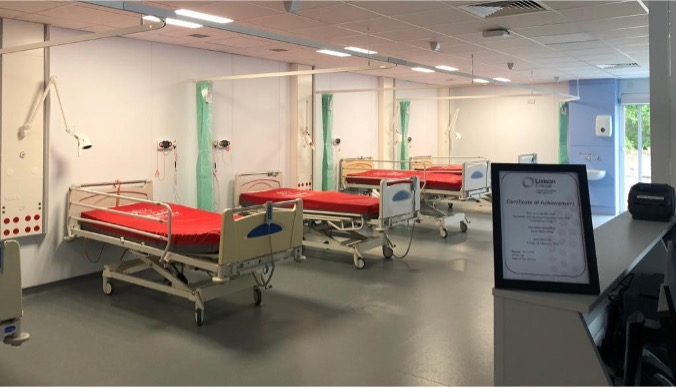Modular buildings are increasingly being used in a range of industries, from hospitality and communications to corporate sectors – with the healthcare sector currently featuring the highest use of prefabricated buildings. Currently, there are several different types of modular healthcare buildings in use, including:
- Modular hospitals
- Medical laboratories
- Patient care centres
- Dental clinics
- Primary care clinics
- Mobile/permanent urgent care centres
If you’re looking further into modular healthcare buildings, here are five benefits of such for you to consider:
1. No site disruption
The offsite construction of modular healthcare buildings operates in a factory-controlled environment, meaning that there are fewer equipment and material suppliers operating on the final construction site and in turn leading to less truck traffic, noise, and waste disruptions. Less disruption paves the way for reduced risk as problems associated with dirt, moisture and impractical work conditions are minimised. Modular buildings follow a streamlined approach to construction which fosters a more efficient atmosphere and leads to greater worksite productivity.
2. Decreased environmental impact
Offsite modular constructions methods produce less waste volume when compared to site-built structures; the controlled environment in which they’re created leaves less room for error and reconstruction waste, leaving less of an impact on the environment. Noise and air pollution are also reduced with less time being spent making deliveries to the worksite – all of which is consistent with the high health and safety standards of both the healthcare industry and here at Thurston Group.
3. Reduced costs
A modular healthcare building often takes less time to construct than site-built structures which impacts the overall cost of construction. The cost of on-site access and labour personnel is also reduced. Healthcare buildings are created according to the strict controlled standards as site-built healthcare facilities but prove far more cost effective. As well as this, the healthcare industry can benefit from a higher return on investment (ROI) because they can be completed in a shorter timeframe.
4. Quicker construction
Prefabricated structures can be built in almost half the time that it takes to build a structure in the traditional way; various components of a modular structure can be manufactured while on-site operations are underway and there’s no contending with sub-contractor delays or adverse weather conditions that can slow down the manufacturing process.
Additionally, healthcare facilities usually require periodic upgrades on equipment and technologies. Prefabricated buildings allow for new structures to be added faster down the line without disrupting the normal functioning of the building.
5. Safer construction
Safety is a key consideration when it comes to the construction of any building, especially those in the healthcare industry. The risk of accidents occurring is greatly reduced with off-site modular construction, as a large percentage of construction activities take place away from the site. This eliminates a significant amount of construction hazards and helps reduce costs associated with time delays, damaged equipment or tools, clean-up costs, insurance and penalties.
Modular healthcare buildings deliver a range of benefits and are definitely a leading consideration in the future of healthcare construction. Here at Thurston Group, we are a leading supplier of modular buildings for a range of different industries – including the healthcare sector. Contact us today for more information.

